Who will be the next pope? Here’s a list of some possible candidates to succeed Pope Francis.

Pope Francis’ death on April 21, the day after Easter Sunday, started off a series of traditions that will soon culminate in a vote for the next pope. His successor will be decided by the Catholic Church’s cardinal electors, a group of 133 cardinals under the age of 80, who are set to begin their conclave on May 7 to hold a secretive election for the next pontiff.
“Every papal conclave comes down, in some sense, to a referendum on the papacy that has just ended,” John Allen, a longtime observer of the Vatican and editor of the Catholic news site “Crux,” said. Several of the likely frontrunners would represent continuity with the direction set by Pope Francis, he said, while others would signal “a change in a slightly more traditional, conservative direction.”
No matter their leanings, Allen said, the cardinal electors will be looking for someone who can equal Pope Francis’ stature on the world stage. “They want, in part, someone who can have the same capacity to make it absolutely impossible for the wider world to ignore what the Catholic Church has to say.”
Over the last 600 years — since 1378 — cardinals have been chosen for the position, although eligibility technically extends to any male Roman Catholic who has been baptized.
Here is look at some of the cardinals considered possible contenders to become pope:
Cardinal Peter Erdo, archbishop of Budapest, Hungary
Cardinal Peter Erdo, a 72-year-old canon lawyer, is the highest ranking Catholic leader in a country that is 80% Christian. He is known for his support of the pope’s outreach to Orthodox Christians.
/ Getty Images
Erdo is also on the conservative side of the European cultural divide. On migration, a key issue for Hungary, he has conveyed a balanced approach, recognizing the right to migrate but also the importance of ensuring political stability.
Erdo is considered a traditionalist but is also respected by liberals, which could make him a unifying force within the church.
Cardinal Fridolin Ambongo, archbishop of Kinshasa, Democratic Republic of Congo
Cardinal Fridolin Ambongo, president of the Symposium of Episcopal Conferences of Africa and Madagascar, grew global attention for leading African bishops in unanimous rejection of “Fiducia Supplicans,” a declaration the Vatican issued in 2023 that included guidelines on the blessings of people in same-sex relationships.
TIZIANA FABI/AFP via Getty Images
At 65 years old, he is known as a supporter of orthodoxy and defends priestly celibacy and the church’s moral teachings. He is also known as a promoter of social justice and a champion of the poor and voiceless, and is outspoken in his criticism of the Congolese government.
If elected he would be the first African chosen to lead the Catholic Church in more than 1,500 years. The last African pontiff was Pope Gelasius, who died in 496 after leading the church for a little over three years.
Cardinal Mario Grech, secretary general for the Synod of Bishops
Cardinal Mario Grech, 68, is a canon lawyer who has major influence on how synods in the church are run. Supporters have praised him for leading the charge in implementing a more consultative and inclusive approach to church governance.
TIZIANA FABI/AFP via Getty Images
Grech comes from Malta, which is one of the smallest countries in the world.
Cardinal Pietro Parolin, the Vatican’s secretary of state
Cardinal Pietro Parolin, 70, is second-in-command at the Vatican and a career diplomat who has consistently risen above any turbulence marking the pontificate.
Simone Risoluti / Getty Images
He is regarded as a moderate who, if elected, could repair rifts inside the church. He is also considered a progressive with a global vision.
Cardinal Pierbattista Pizzaballa, Latin patriarch of Jerusalem
Cardinal Pierbattista Pizzaballa, 60, is a pastoral candidate who has spoken out amid the Israel-Hamas war and visited Gaza during the conflict.
KHALIL MAZRAAWI/AFP via Getty Images
He is a proponent of social justice and sees himself as a servant of the people. He is similar to Francis in his concern for migrants, interfaith dialogue and his disdain for clericalism.
Cardinal Luis Tagle of the Philippines
Cardinal Luis Tagle, 67, and pro-prefect for the Congregation for the Evangelization of Peoples, is known as the “Asian Francis” for his missionary spirit as well as his emphasis on caring for the poor and welcoming of LGBTQ and divorced and remarried Catholics.
/ Getty Images
He is the former archbishop of Manila, in the Philippines, which is one of the most Catholic countries on the continent of Asia, and studied in the U.S. for seven years. His election would signal a continuation of Francis’ pontificate.
Cardinal Matteo Zuppi, archbishop of Bologna, Italy
Cardinal Matteo Zuppi, 69, is the president of the Italian bishops conference. He is known as a “street priest” and missionary and wants a church that listens to the faithful and is willing to modernize. Zuppi is inclusive of same-sex couples, as well as people of different religions.
/ Getty Images
Francis chose Zuppi as his envoy to Russia and Ukraine, as well as to the West Bank and Beijing, to promote peace.
Cardinal Anders Arborelius, archbishop of Stockholm
Cardinal Anders Arborelius, 75, was raised Lutheran and converted to Catholicism at the age of 20. He is the first ever cardinal from Scandinavia.
He is also a traditionalist on the church’s teaching on sexual ethics and gender, and has a strong concern for the environment.
/ Getty Images
Arborelius has been a proponent of immigration into Sweden, calling for dialogue and integration instead of restrictions.
Cardinal Gerald Cyprien Lacroix of Quebec
Cardinal Gérald Cyprien Lacroix, Metropolitan Archbishop of Quebec, Canada, is 67 years old. Earlier in his career he spent years as a missionary and seminary professor in Colombia.
Peter Macdiarmid / Getty Images
He temporarily stepped back from his duties amid sexual abuse allegations, which he denied, and returned to his duties last year after a church-led investigation found no evidence of misconduct.
Cardinal Peter Turkson of Ghana
Conservative-leaning Cardinal Peter Turkson of Ghana would, like Ambongo, be the Catholic Church’s first contemporary African pope if selected.
But the Ghanaian, who was the first man from his country to be made a cardinal, is considered a less hard-line conservative than his Congolese counterpart.
Riccardo De Luca/Anadolu via Getty Images
The 76-year-old has opposed the criminalization of homosexual relationships in Africa, including in his home country.
In 2012, he was criticized for fear-mongering about Islam in Europe during a Vatican conference, and he later apologized.
The following year, he told BBC News he didn’t want the Catholic Church’s top job, saying, “I’m not sure whether anyone does aspire to become a pope.”
Cardinal Jean-Marc Aveline of France
At 66, French Cardinal Jean-Marc Aveline, the Archbishop of Marseille, is on the younger side compared to many of his fellow prelates. If chosen as the next pope, he would be the first Frenchman to hold the position since Gregory XI died in 1378.
Aveline, who was born in Algeria under French colonial rule but grew up in Marseille, is considered a progressive on issues such as immigration, as was Pope Francis.
Maria Grazia Picciarella/SOPA Images/LightRocket/Getty
He has spoken out about drug trafficking networks based in Marseille, and helped to establish an institution that encourages interfaith dialogue between Catholics, Muslims and Jews.
Aveline was considered a favorite of Pope Francis, but some believe his chances as a papal candidate could be harmed by the fact that he doesn’t speak Italian.
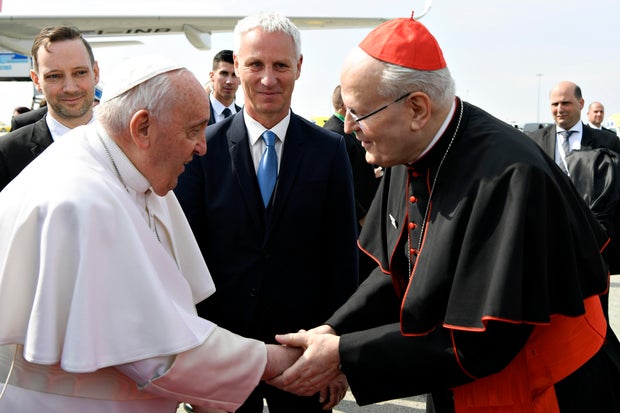
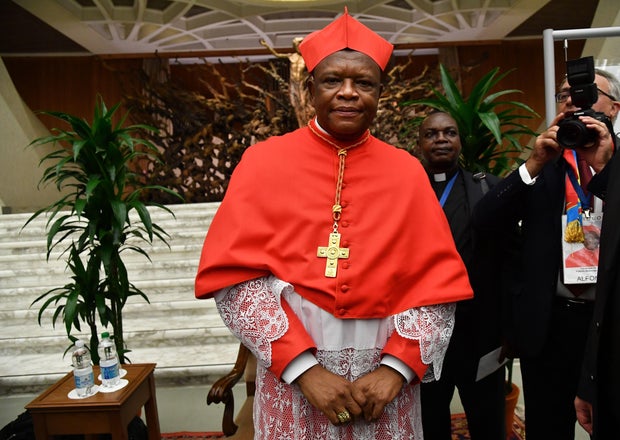
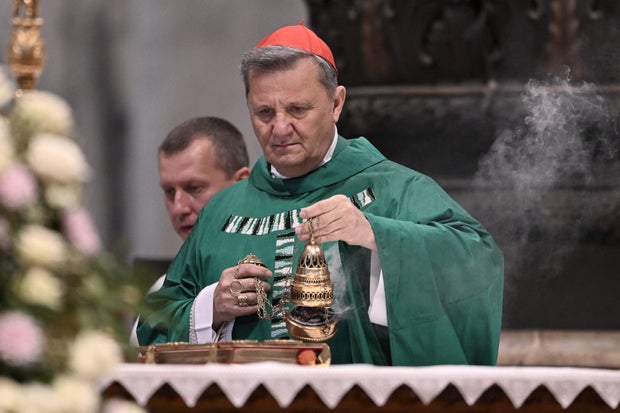
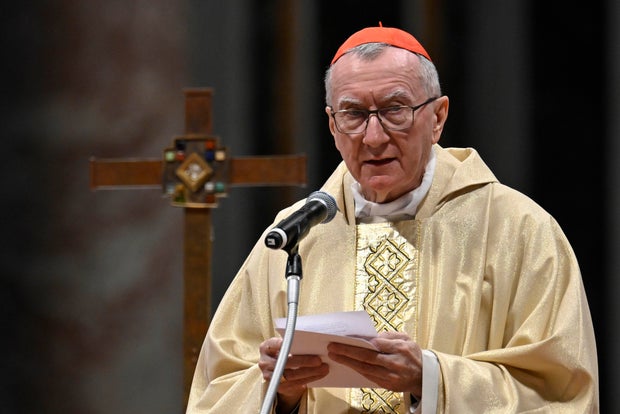
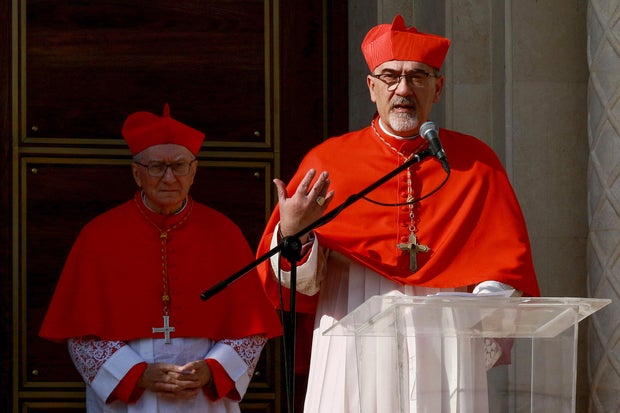
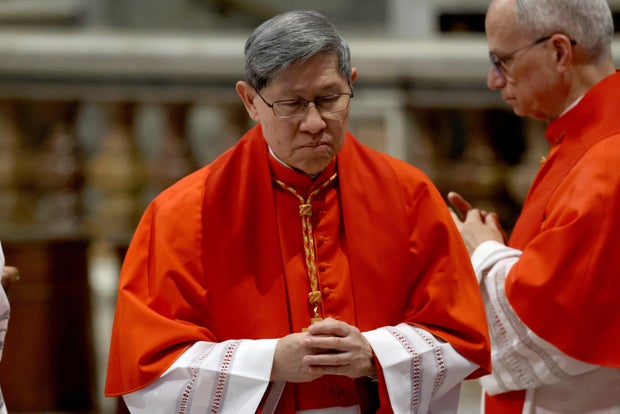
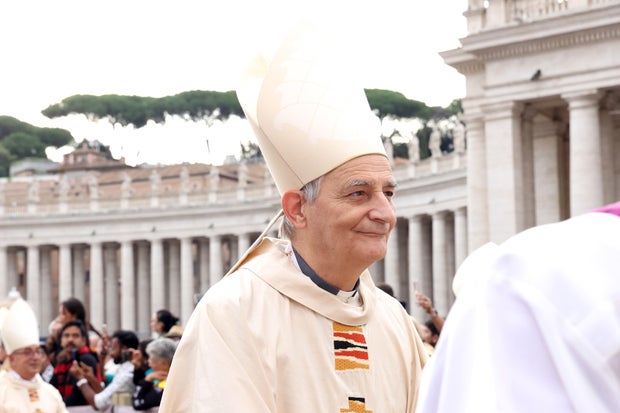
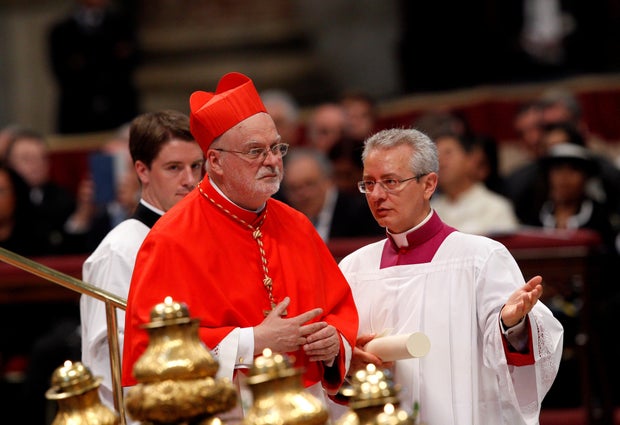
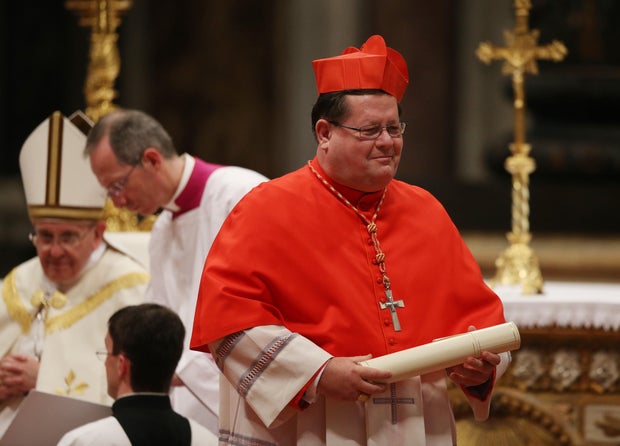
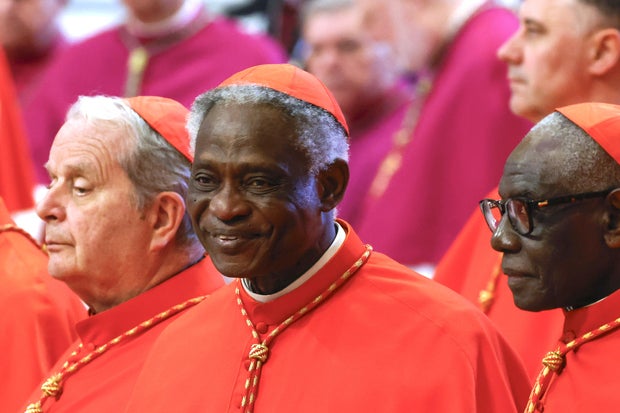
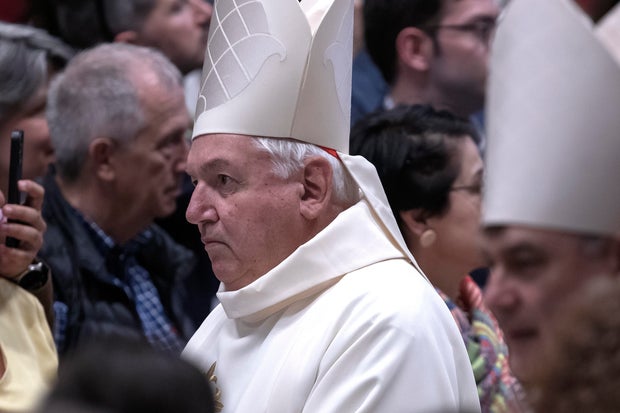
 Explosions Reported in Pakistani Kashmir After India’s Vow of Retaliation
Explosions Reported in Pakistani Kashmir After India’s Vow of Retaliation  US Supreme Court allows Trump ban on transgender troops to take effect
US Supreme Court allows Trump ban on transgender troops to take effect  India, UK agree ‘historic’ trade deal including tariff cuts | International Trade News
India, UK agree ‘historic’ trade deal including tariff cuts | International Trade News  House Democrats storm out of cryptocurrency hearing, alleging Trump ‘corruption’
House Democrats storm out of cryptocurrency hearing, alleging Trump ‘corruption’  Taiwan dollar eases after historic surge as officials deny currency talks with U.S.
Taiwan dollar eases after historic surge as officials deny currency talks with U.S.  Endgame With Its Horror Villains
Endgame With Its Horror Villains  The Best Tech Gifts for Mother’s Day 2025
The Best Tech Gifts for Mother’s Day 2025  The Signal Clone Mike Waltz Was Caught Using Has Direct Access to User Chats
The Signal Clone Mike Waltz Was Caught Using Has Direct Access to User Chats